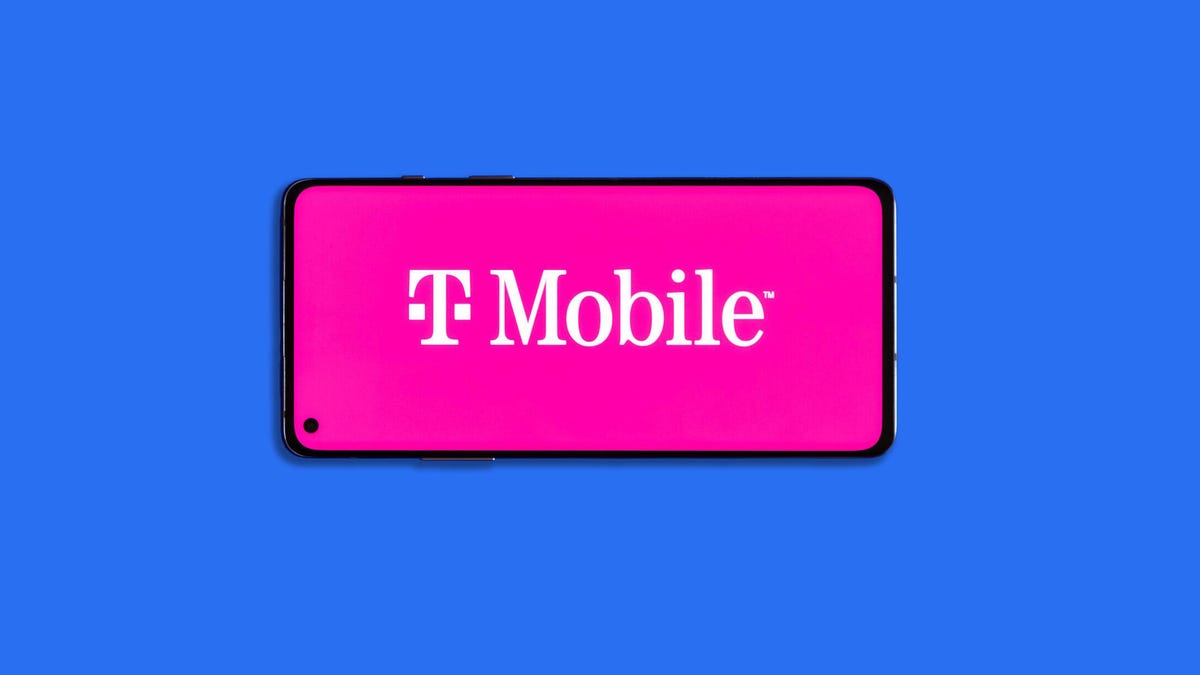T-Mobile's Midband 5G Network Is Getting Another Boost
After a long wait, the carrier is getting access to some additional midband spectrum that it purchased back in 2022.

T-Mobile users around the country may soon see some improvements to their service. The carrier on Wednesday announced that it finally has access to additional midband spectrum, with T-Mobile's President of Technology Ulf Ewaldsson telling CNET that the airwaves will provide a boost to service for nearly 60 million people in the "coming days" and over 80 million people overall as it builds additional towers.
The spectrum, which is the 2.5GHz frequency that is the core to much of T-Mobile's faster 5G "Ultra Capacity" offering, was purchased by the carrier for $304 million in a government auction in 2022. Regulatory hurdles around the Federal Communications Commission's auction jurisdiction prevented the carrier from accessing the spectrum until now, but those issues seem to have been resolved at last.
Read more: Best T-Mobile Phone for 2024
Ewaldsson says that the carrier will be doing a software push to its existing towers in the next few days to add the extra capacity for roughly 60 million people. Getting to that 80 million number will require the carrier to build additional cell towers and will take some time. No timeframe was given for when those new towers will be built.
"For all the towers that we have that can carry 2.5 (GHz), we're just reprogramming them now," he says, adding that this is why "the 60 (million) is so easy for us to do."
In its press release announcing the news, T-Mobile touts that it won licenses for additional spectrum in this frequency for "more than 7,000" counties across the country and that a "majority of the licenses cover rural areas." It does, however, note that since it won "licenses in nearly every county across the US" even those outside of where it will be deploying new spectrum should see better performance.
Because this is using the same 2.5GHz frequency (also known as band n41) that T-Mobile already uses for much of the country, users won't need to upgrade their devices to see these improvements.
Ewaldsson and T-Mobile are not giving exact estimates for what types of speeds users will be able to achieve with this extra capacity since results will vary from market to market. Ewaldsson does note that this extra capacity should help the carrier with deploying other offerings, like expanding its T-Mobile Home Internet service to more people.
Read more: CNET's T-Mobile Home Internet review
T-Mobile has previously said it aims to have 7 to 8 million people subscribed to its home internet offering by 2025. "From a technology point of view, from my eyes, this is going to help us to provide more home internet," Ewaldsson says.
The additional 2.5GHz spectrum is just the latest addition of spectrum to T-Mobile's holdings, as the carrier separately acquired C-Band midband spectrum in a separate FCC auction back in 2021.
It also may end up retaining its low-band 800MHz spectrum that it acquired as part of its Sprint merger. That spectrum was lined up to be divested to Dish, but the satellite TV provider has had financial issues as it looks to become a fourth wireless network and in a recent SEC filing revealed it doesn't have the financing to purchase the spectrum from T-Mobile.
It is unclear when T-Mobile might put those additional holdings to use. "C-band is another capacity boost. We feel very confident about the capacity in the network, or I feel super confident about it and have therefore kept delaying the C-band rollout," Ewaldsson says. "The plan is the second half of this year. Right now, we don't see any real need for this half year, for example. And we are continuously going to evaluate when is [the] right timing."
As for the 800MHz, Ewaldsson says the carrier is still waiting for "final confirmations" from Dish and then it will decide whether to deploy it, divest it to another company or auction it off.

